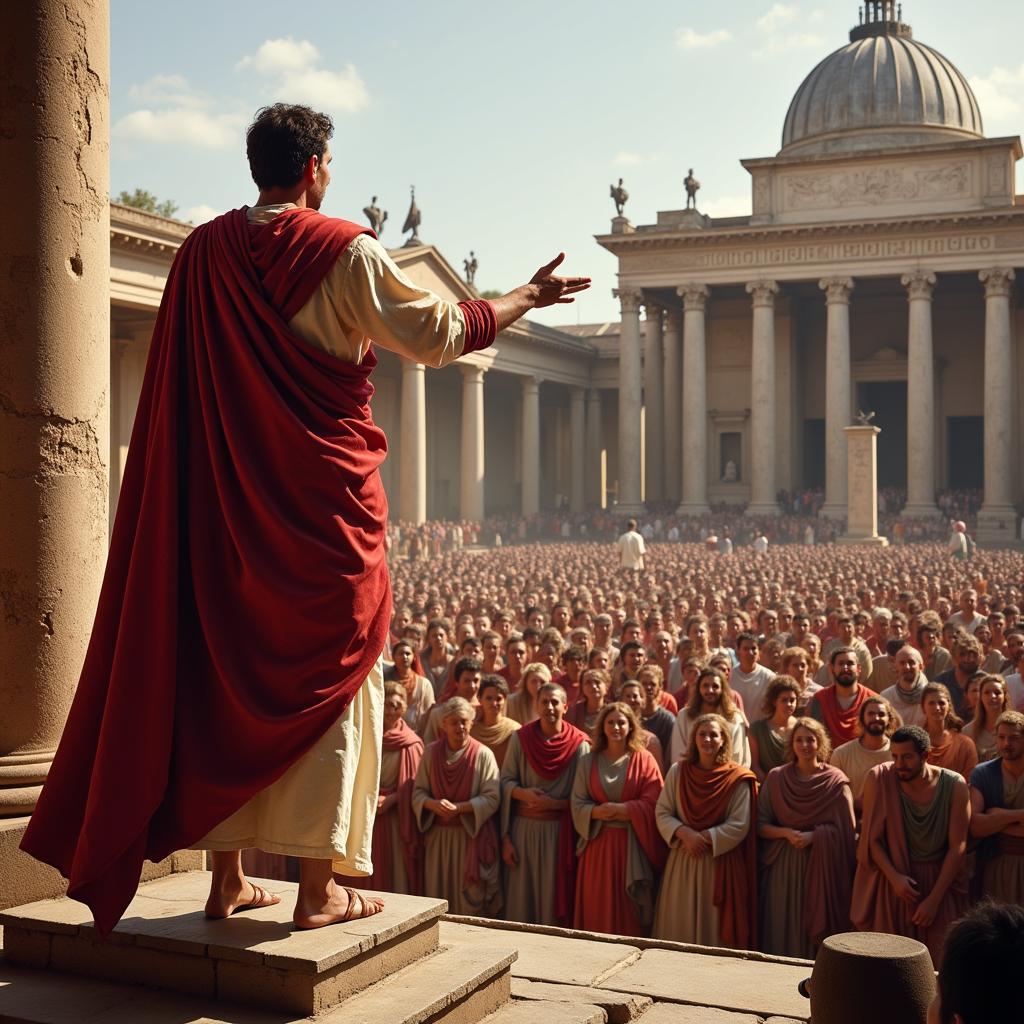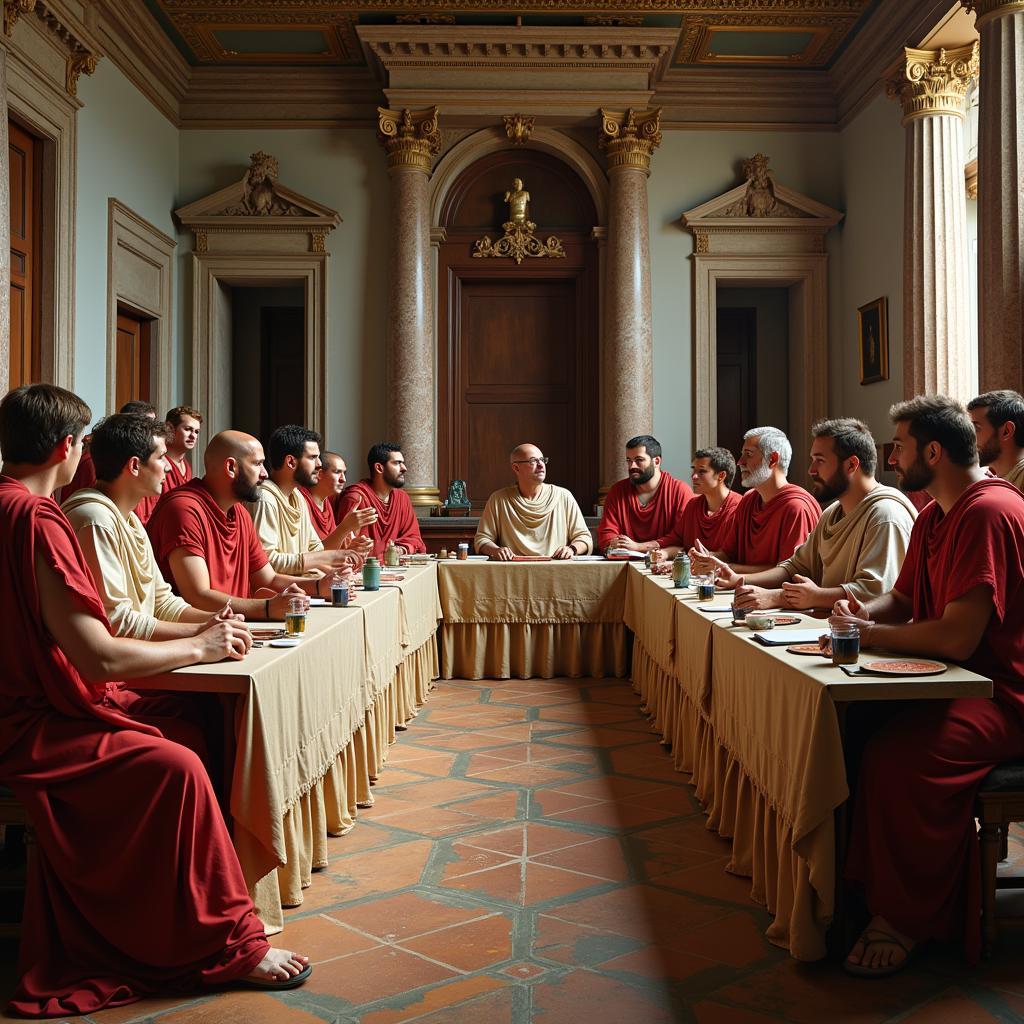The Roman Republic, a civilization that has captivated historians and enthusiasts for centuries, was a complex society with a rigid social hierarchy. Understanding What Distinguished Patricians From Plebeians In Roman Society is key to grasping the dynamics of power, conflict, and ultimately, the evolution of Roman law and governance. At its core, the distinction was one of birth and privilege, impacting every facet of Roman life.
Patricians were the elite, the nobility of Roman society. Their lineage traced back to the very founding of Rome, and they held a monopoly on political power and religious offices for centuries. Plebeians, on the other hand, encompassed the vast majority of Roman citizens, including farmers, artisans, merchants, and laborers. While they were free citizens with rights, they were initially excluded from the upper echelons of power. This fundamental difference fueled centuries of social and political struggle, shaping the very fabric of Roman society. patrician society
The Origins of the Divide: Birth and Ancestry
The division between patricians and plebeians is believed to have originated in the very early days of Rome. Patricians claimed descent from the original senators appointed by Romulus, the mythical founder of Rome. This claim to ancestral privilege formed the bedrock of their superior social standing. Plebeians, whose origins were more diverse and often less clear, lacked this prestigious lineage, which barred them from holding high office and participating in certain religious rituals.
Was wealth a factor in distinguishing between patricians and plebeians?
While patricians were generally wealthy due to their control of land and resources, wealth alone did not define the distinction. Many plebeians, especially merchants and traders, accumulated considerable wealth but remained excluded from the patrician class. The defining factor was ancestry.
Political Power and the Struggle for Equality
Initially, patricians held a firm grip on political power. They dominated the Senate, the primary governing body of Rome, and held all major political and religious offices. Plebeians, despite their numbers, had little say in the affairs of the state. This imbalance led to centuries of conflict known as the “Conflict of the Orders.”
How did plebeians gain political power?
Through persistent struggle and organization, plebeians gradually gained political rights. They formed their own assemblies, elected their own representatives called tribunes, and eventually secured the right to hold high office, including the consulship. The creation of the Twelve Tables, Rome’s first written law code, was a major victory for plebeians, ensuring greater legal equality.
 Plebeian Tribune Addressing Roman Citizens
Plebeian Tribune Addressing Roman Citizens
Social and Economic Differences
Beyond politics, social and economic differences further distinguished the two classes. Patricians typically owned large estates and controlled vast resources. They enjoyed a lifestyle of luxury and leisure, often relying on the labor of plebeians. While plebeians could own property and engage in commerce, their opportunities were often limited by their social standing and lack of access to the same resources as patricians.
What were the social customs and practices that differentiated patricians and plebeians?
Patricians adhered to strict social customs and practices, including specific dress codes and marriage restrictions. These customs served to reinforce their exclusivity and differentiate them from the plebeian population. Intermarriage between patricians and plebeians was initially forbidden, further solidifying the social divide. Dr. Livia Aurelius, a renowned historian of ancient Rome, explains, “These social customs were not merely superficial; they served as powerful symbols of social status and played a crucial role in maintaining the patrician grip on power.”
The Blurring of Lines: Later Roman Republic
As the Roman Republic expanded and evolved, the strict lines between patricians and plebeians began to blur. The rise of wealthy plebeian families and the increasing accessibility of political office led to a more fluid social hierarchy. While the distinction never entirely disappeared, its significance diminished over time. Professor Marcus Valerius, a specialist in Roman social history, notes, “The later Republic witnessed the emergence of a new elite, the ‘nobilitas,’ comprising both patrician and plebeian families who held high office. This marked a significant shift in the traditional social structure.”
 Roman Senate Meeting in the Late Republic
Roman Senate Meeting in the Late Republic
Conclusion: A Legacy of Social and Political Change
The distinction between patricians and plebeians in Roman society was a defining characteristic of the Republic. This division, based on birth and privilege, fueled centuries of struggle that ultimately reshaped Roman law, governance, and social structure. Understanding this fundamental distinction offers valuable insights into the complexities of Roman civilization and its lasting impact on Western history. What distinguished patricians from plebeians wasn’t just their lineage, but the very fabric of Roman society itself.
FAQ:
- Could a plebeian become a patrician? Not through traditional means. The patrician class was based on ancestry. However, in later periods, some emperors elevated certain plebeian families to patrician status.
- Did all patricians hold political office? While patricians had the right to hold office, not all actively participated in politics.
- What were the main grievances of the plebeians? Initially, plebeians lacked political representation and were excluded from holding high office. They also sought greater legal equality and economic opportunities.
- When did the Conflict of the Orders end? It gradually subsided over several centuries, with significant milestones like the creation of the Twelve Tables and the opening of high offices to plebeians.
- Did the distinction between patricians and plebeians exist in the Roman Empire? While the distinction persisted, its importance diminished significantly under the emperors.
- How did the patrician-plebeian divide influence later civilizations? The Roman struggle for social and political equality has resonated throughout history, influencing later movements for democracy and social justice.
- Where can I learn more about Roman social history? You can explore resources like academic journals, historical texts, and online databases dedicated to Roman history.
For further support, please contact us at Phone Number: 02043854663, Email: [email protected] Or visit our address: Khu 34, Bac Giang, 260000, Vietnam. We have a 24/7 customer support team.